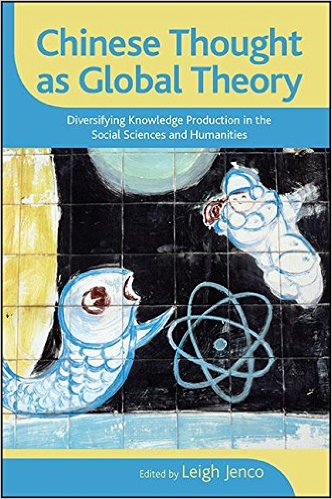 Another fresh book just published revolves around how non-Western (in this case Chinese) thought can influence our global understanding of the world, loose from a normatively Western gaze or interpretive framework. As the introduction kicks it off:
Another fresh book just published revolves around how non-Western (in this case Chinese) thought can influence our global understanding of the world, loose from a normatively Western gaze or interpretive framework. As the introduction kicks it off:
“Globalization has expanded connections and narrowed distances between cultural, ethnic, and social groups. These developments would suggest an ever-greater inclusion of global thought traditions to stand not only as the objects of academic inquiry, but also as its generative structure and vocabulary. However, despite sophisticated examinations by sociologists, literary theorists, historians, anthropologists, and others about the nature of cultural exchange, the descriptions and theorizations of such trends remain firmly committed to a theoretical vocabulary that emerged largely from the languages and experiences of the Anglo-European works. Even those research paradigms most critical of Eurocentrism – including postcolonialism and comparative political theory – tend to frame their theoretical contributions as internal critiques of existing Europeanized discourses or as reminders of “both equivalences and differences” across cultures.” (p. 1)